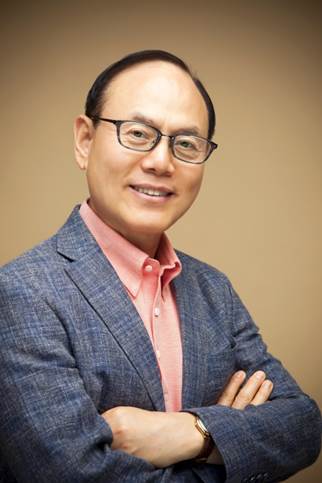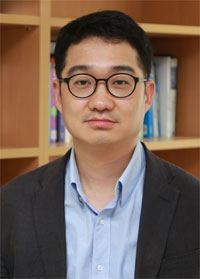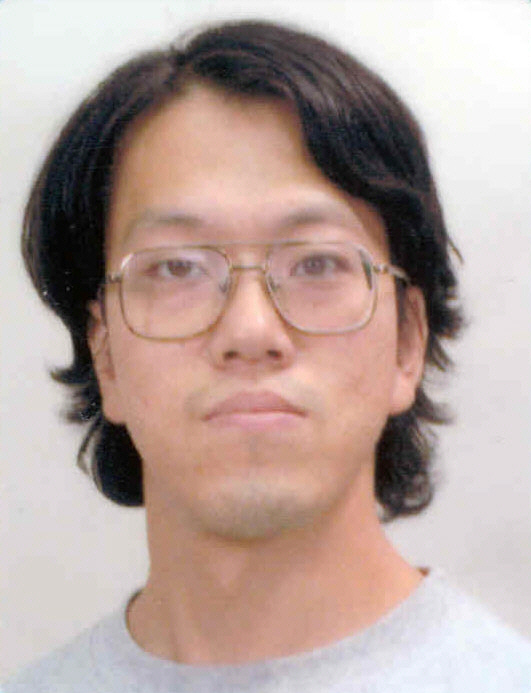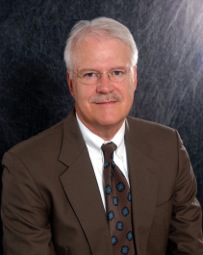SID's Sunday Short Courses offer a thorough introduction to topic fundamentals for students, scientists, and engineers looking to expand their technical breadth into a new area.
The four-hour Short Courses differ from SID's 20-minute Symposium talks and 90-minute Seminars, which generally focus on the latest developments in specific technical areas,
adding technical depth. By having these introductory courses at the start of Display Week, attendees can learn the fundamentals first, before absorbing advanced presentations on focused topics in the Seminars and Symposium.
S-1
Room
9:00 am -1:00 pm
|
 
Ho-Kyoon Chung
Jongwook Park
|
S-1: Fundamentals of OLED Displays
|
|
The commercial production of OLED TV and flexible OLED devices began in 2014 with great excitement. LG Display announced that they will produce 600,000 OLED TVs using a white OLED and oxide-TFT backplane in 2015. Also, plastic OLED technology has been applied to Samsung's Galaxy Note 4-Edge and smart watches. Professor Chung will review the technical challenges of large-sized OLED TV and flexible OLED devices and will discuss the future opportunities of OLED technology. Professor Park will address the basic structure of OLEDs, their operational principles, fluorescent and phosphorescent materials, fabrication methods, evaluation technologies, top-emission technologies, tandem technologies, etc. In addition, the current technical status of OLED materials and devices will also be discussed.
Instructor Bios:
Ho-Kyoon Chung is currently Chair Professor at Sungkyunkwan University. He was previously a full-time Advisor and Executive Vice-President at Samsung SMD, which was dedicated to the R&D and manufacture of AMOLED products and mobile LCD modules. Prior to that, he was the Executive Vice-President and CTO of Samsung SDI and head of the Samsung SDI Corporate R&D Center from 2006 to 2008. Dr. Chung led the R&D of active-matrix OLEDs (AMOLEDs) since 2000 and is a world leader in bringing AMOLED technology into the commercial marketplace. Prior experience includes Managing Director of the Memory Product Engineering and the Manufacturing Technology Center at Samsung Electronics, Semiconductor Business, from 1988 to 1999. Dr. Chung received his B.S. degree in electronics engineering in 1973 from Seoul National University, M.S. degree in 1977 from Case Western Reserve University, and Ph.D. degree in electrical engineering in 1981 from the University of Illinois at Urbana-Champaign.
Jongwook Park is Professor of Organic Chemistry ln the Chemistry Department of the Catholic University of Korea. He received his Ph.D. degree from KAIST (Korea Advanced Institute of Science and Technology) in 1994. From 1995 to 1996, he worked as a research fellow under Prof. Alan MacDiarmid of the University of Pennsylvania, Nobel Laureates of Chemistry in 2000. In 1995, he joined Samsung SDI, received the Ph.D. Project Award from Samsung SDI in 1996, and established his OLED team in 1997. His research interests are mainly focused on the synthesis and properties of pi-conjugated materials for electronics as well as OLEDs. For his contributions to the development of new synthetic compounds for OLEDs, he was awarded the Excellent Paper award of the Korean Electronic Materials Society in 2001. He has authored 214 SCI papers and holds 43 patents in the field of organic semiconducting materials.He was a general director of the Korean Polymer Society, the Korean Union of Chemical Science and Technology Societies, and the Korean Society of Industrial and Engineering Chemistry for 7 years. He is an OLED committee member of SPIE in the U.S., the Korean Display Society, and the polymer division chairman of the Korean Society of Industrial and Engineering Chemistry. He was also chairman of eight large-scale projects of the Korean industry in relation to electronic materials. He received the Prime Minister Award from Korean government in 2012.
|
S-2
Room
9:00 am -1:00 pm
|
 
Hsiao-Wen Zan
Yong-Young Noh
|
S-2: Fundamentals of Organic Transistors for Flexible Displays and Electronics
|
|
This short course will firstly address the basic operation principle of organic transistors, including conventional field-effect transistors (FETs) and various types of vertical-channel transistors. Then, with an emphasis on solution-processed organic transistors, key issues such as the control of hysteresis, bias-stress reliability, carrier mobility, and grain growth will be investigated. Finally, recent progress on large-area solution processing will be introduced. .
Instructor Bios:
Hsiao-Wen Zan is a full professor in the Department of Photonics at National Chiao Tung University in Taiwan. She obtained her undergraduate degree from the Department of Electrical Engineering of National Taiwan University (1997) and her M.S. (1999) and Ph.D. (2003) degrees from the Institute of Electronics at National Chiao Tung University. She joined the Department of Photonics of National Chiao Tung University as an assistant professor soon after obtaining her Ph.D. degree. Since then, performed research on transistors and sensors based on organic and oxide-semiconductor materials. In 2008 and 2012, she became an associate professor and full professor, respectively. During the past decade, she has authored and/or co-authored more than 74 SCI papers and 22 invention patents. She received the Excellent Young Electrical Engineer Award from the Chinese Institute of Electrical Engineering in 2010 and was named as one of Taiwan’s Promising Women in Science by the Wu-Chien Shiung Education Foundation in 2011. Since 2013, she has served as an Associate Editor for the IEEE Sensors Journal and is Chair of the IEEE Taipei Section Sensor Council. With a background in electronics, she has formed close collaboration with chemists and medical doctors when developing organic-based devices and biomedical sensors. Her research interest focuses on organic and oxide-semiconductor devices, with an emphasis on the development of low-temperature high-performance organic or organic/inorganic hybrid transistors, reliability analysis, photo sensors, and chemical/bio sensors for medical diagnostics.
Yong-Young Noh is an Associate Professor in the Department of Energy and Materials Engineering at Dongguk University in Seoul, Korea. He received his Ph.D. degree in 2005 from the Gwangju Institute of Science and Technology, Korea, and then worked at the Cavendish Laboratory in Cambridge, UK, as a postdoctoral associate from 2005 to 2007. Afterwards, he worked at the Electronics and Telecommunications Research Institute (ETRI), Korea as a senior researcher from 2008 to 2009, and at Hanbat National University as assistant professor from 2010 to 2012. Prof. Noh received the Merck Young Scientist Award (2013), the Korea President Award (2014), and the George E. Smith Award from the IEEE Electron Device Society (2014). He has expertise in materials, processes, and device physics of organic and printed electronics for flexible electronics, especially printed OFETs, carbon-nanotube or oxide TFTs and OLEDs. He has published more than 150 SCI papers and 40 patents.
|
S-3
Room
3:00-7:00 pm
|

Toshio Kamiya
|
S-3: Fundamentals and Applications of Oxide TFTs
|
|
Amorphous-oxide semiconductors (AOSs) have large electron mobilities > 10 cm2/(V-sec) and is employed for thin-film transistors (TFTs) in high-resolution LCDs and large-sized OLED displays. This lecture will first provide a review of the current applications of amorphous-oxide-semiconductor displays and other applications. This will be followed by a discussion on how to grow device-quality AOS films and TFTs in relation to the atomic structure, defect structure, and impurity issues, which can be controlled by the deposition and annealing conditions. More fundamental aspects, the origin of the large mobility, and the material design of amorphous- oxide semiconductors will also be discussed.
Instructor Bio:
Toshio Kamiya began his research career as an Assistant Professor in the Department of Inorganic Materials at the Tokyo Institute of Technology, Tokyo, Japan, in 1991 and then moved to the Interdisciplinary Graduate School of Science and Engineering in 1996. He received his Dr(Eng) degree in materials science from the Tokyo Institute of Technology in 1996. He spent 2 years at the Microelectronics Research Centre, Cavendish Laboratory, at the University of Cambridge as a visiting scholar from 2000 to 2002. He became an Associate Professor in 2002 and a full professor in 2010 in the Materials and Structures Laboratory at the Tokyo Institute of Technology. His field of research includes exploration, materials design, and device applications of new functional inorganic materials. He has published about 350 scientific papers. He was awarded the Tejima Research Award (Invention) in 2011, CerSJ Awards for academic achievements in ceramic science and technology, the Young Scientists' Prize by MEXT in 2007, and the Advanced Technology Award by the Fuji-Sankei group in 2005.
|
S-4
Room
3:00 - 7:00 pm
|

James Larimer
|
S-4: Fundamentals of Color Management for Displays and Lighting
|
Color standards are used to specify the colors of paints, fabrics, dyes, pigments,
and colors captured and reproduced by cameras and displays and to gauge the quality of
artificial light. All standards used today are traceable to the CIE 1931 XYZ Standard Observer and the Photopic Luminosity Function that preceded it. This short course will provide the foundation for reproducing color on displays and for the Monday Seminar on Device Color Management.
Instructor Bio:
James Larimer has over 40 years experience in the field of color vision and electronic displays. He received his Ph.D.degree in experimental psychology from Purdue University and was a Post-Doctoral Fellow at the University of Michigan’s Human Performance Center. He was a Professor of Psychology and Department Chair at Temple University, served as the Director of the Sensory Physiology and Perception Program at the National Science Foundation, and was a Senior Scientist at NASA’s Ames Research Center. He is currently retired and serving as a consultant in the field of imaging and displays.
|